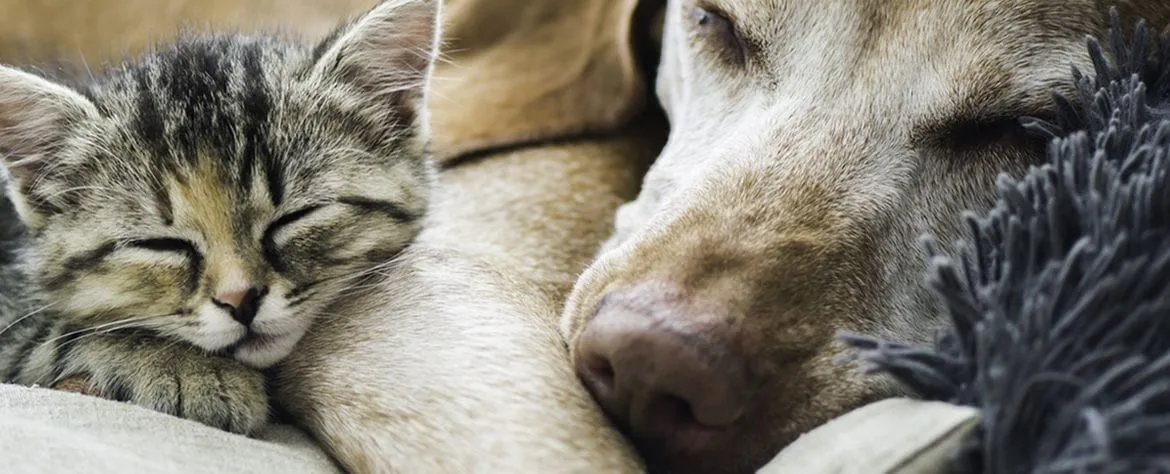
Ah, our beloved furry family members! As dog owners, we cherish them, care for them, and often go to great lengths to protect them. Among the many things we fret over, one aggressive virus that rings alarm bells is canine parvovirus, or as it's commonly called, parvo.
Contact with an infected dog can expose your pet to the aggressive parvovirus. With symptoms of parvo ranging from severe diarrhea to an attack on bone marrow, it's a threat that's all too real. Recent cases have shown that different strains of the virus are emerging, making immunity through vaccination even more crucial.
Your pet's health and happiness are in your hands. Parvo is a deadly yet preventable disease. The best way to shield them? A timely vaccine. By ensuring your pet gets their parvo vaccine, you're equipping them with the immunity they need to ward off these different strains.
The thought of our furry loved ones coming into contact with such a deadly virus keeps many of us up at night. But here's the good news: armed with accurate information and taking the utmost care, we can keep them safe.
Understanding Canine Parvovirus
Canine parvovirus is a highly contagious viral disease that primarily affects the intestinal tract of our dogs. Early signs of a parvo infection include lethargy, vomiting, and diarrhea, often with blood. If you're a frequent visitor to doggy parks, you might already know that these symptoms of parvo can wreak havoc in no time, especially in areas facing a severe outbreak situation.
But did you know that cats can also be affected by a type of parvovirus? While dogs grapple with the canine parvovirus strain, cats deal with the feline panleukopenia virus. But fret not; canine parvo doesn't typically affect felines and vice versa. However, mutated variants of the virus are always a cause for concern.
In addition to direct contact with an infected dog, the virus can easily spread through contaminated environments or objects. Simple things like sharing water bowls or a toy can be enough for a healthy dog to catch parvo. This makes places with high canine traffic, like dog parks or kennels, potential hotspots for transmission.
The good news is that while parvo is dangerous, immunity can be achieved. After recovering from the infection, most dogs develop a long-lasting immunity against the same strain. Moreover, with timely parvo treatment, the chances of recovery increase substantially. Modern medicine, paired with a vigilant owner's care, can combat the threat of this virus, minimizing its devastating effects on our beloved companions.
Can A Dog Catch Parvo Twice?
The burning question is, can a dog that's already suffered from parvo get infected again? In most cases, adult dogs that recover from a parvo infection develop immunity that lasts a long time. These adult dogs, having faced the virus once, are typically resistant to canine parvo of the same strain. However, the emergence of a different strain can put previously infected dogs at risk. Additionally, young puppies, especially in their first weeks of life, are at the highest risk of death if infected. Their immune system is still maturing, making it a battle to fend off such a hostile virus.
For puppies in the early weeks of life, their undeveloped immune system leaves them particularly vulnerable to severe illness. Their body's defenses aren't fully equipped to recognize and combat the early signs of parvo, making swift intervention crucial. This is why it's of paramount importance for pup owners to be aware of and act upon any symptoms immediately.
The health of surviving dogs greatly depends on the timely administration of parvo vaccinations. These vaccines not only safeguard them from future infections but also bolster the immune system of a young puppy, preparing it to fend off potential threats. This proactive approach goes a long way in ensuring that even if a dog is exposed to the virus, the severity and potential complications of the illness are greatly reduced.
The Role of Vaccines
Here's where things get hopeful. Vaccines have proven to be the most effective way to prevent parvovirus disease. In the first few weeks of life puppies should be vaccinated. Booster shots, given at regular intervals, ensure that their immunity remains strong. Unvaccinated dogs, on the other hand, are left vulnerable. In fact, in severe outbreak areas, unvaccinated dogs are a primary concern for the further spread of the virus. Special care and attention to puppy vaccinations, particularly parvo vaccinations, are essential.
While most doggy owners are on high alert for parvovirus, it's essential to understand that cats, too, have their own battles. Feline panleukopenia, a type of parvovirus that affects cats, can cause severe illness in our feline friends. This virus is not the same as the strain of parvo that affects dogs, but the mode of contact and transmission is eerily similar. This underscores the importance of vaccination not just for specific breeds of dogs but across the pet spectrum. As strains of canine parvovirus evolve and vary, understanding the nuances between them becomes vital.
For those bringing puppies into their lives, especially during the crucial weeks of life, it's imperative to consult with a veterinarian and do one's own research. With so many strains and breeds, a one-size-fits-all approach is not the most effective. Tailored vaccination schedules, based on the specific breed and potential risk factors, will always be the most protective measure a pet owner can take. Knowledge, combined with timely action, is the surest safeguard against these menacing viruses.
The Importance of Ethical Vaccine Practices
With the benefits of pet vaccinations clear, it's equally crucial to ensure ethical vaccine practices. Doggo owners should do their own research, even if it means investing a few research dollars. Not all vaccines are created equal, and not every breed of dogs requires the same set of vaccinations. For instance, German Shepherd dogs may have different vaccine requirements than other breed of dogs.
The Aftermath of Parvo and Treatment
Dogs that survive parvo, especially without early treatment, may face residual health complications. The virus attacks the bone marrow and small intestines, requiring intensive dog treatment that includes intravenous fluids and medications. The sooner supportive medical care is given, the higher the chances of survival.
The best way to ensure the health of a surviving dog is to provide love and care and stay vigilant for any signs of a different strain of canine parvo, especially in light of recent mutated variants of the virus.
In addition to the heartbreak it brings, treating parvo can be an intensive care process, both emotionally and financially. The bottoms of an infected animal, especially in places like parks for dogs, can easily transmit the virus to others. So, what's the good idea here? Vaccinate! Ensure that your pets, both cats and dogs, are protected against these viruses. Vaccination not only saves our furry companions but also helps prevent the spread of the virus, protecting others in the community.
Phoenix Veterinary Center emphasizes the importance of ethical vaccine practices, and we're here to provide accurate information for pet owners. Our primary goal? To see a world where our furry friends, from the youngest puppies to the most seasoned adult dogs, live without the shadow of parvo looming over them. Because every pet deserves the best!
Don't Wait Until It's Too Late: Protect Your Furry Friend from Parvo Today!
Your pet's health and happiness are in your hands. Parvo is a deadly yet preventable disease. Schedule an appointment at Phoenix Veterinary Center now and ensure your pet gets their parvo vaccine. Give them the defense they deserve against this deadly virus. Remember, prevention is always better than cure.



